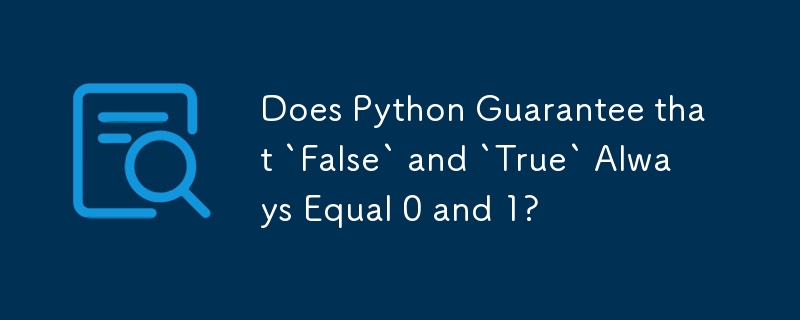

In Python, it is common practice to associate the False and True Boolean values with the integers 0 and 1. However, is this correspondence guaranteed by the language, or is it merely an implementation detail that could change in future versions?
In Python 2.x, True and False are not explicitly defined as keywords, and their values can be reassigned. However, even in this case, comparisons still return the correct True and False values.
In Python 3.x, True and False are officially defined as keywords. This guarantees that their values will always be equal to 1 and 0, respectively.
Underlying the equivalence between Booleans and integers in Python is the fact that bool inherits from int. This inheritance relationship ensures that Booleans can be used in contexts expecting integers, such as list indexing.
The Python documentation explicitly states that Booleans inherit from integers:
object
|
int
|
boolThe documentation also clarifies that Booleans behave like integers 0 and 1 in almost all contexts, except when converted to strings.
Based on the documentation and the current implementation of Python, it is safe to assume that False and True will always be equal to 0 and 1, respectively. However, if Python 4 introduces significant changes to the integer inheritance hierarchy, this assumption may no longer be valid.
The above is the detailed content of Does Python Guarantee that `False` and `True` Always Equal 0 and 1?. For more information, please follow other related articles on the PHP Chinese website!




